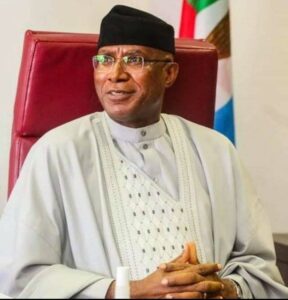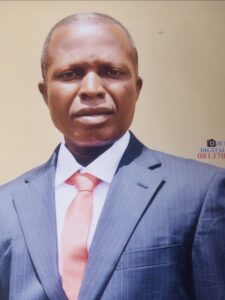Okowa and Delta @ 24
By Alex O. Atawa-Akpodiete
On August 27, 1991, Delta State was created by the bifurcation of Bendel State into Edo and Delta by the military government of Gen. Ibrahim B. Babangida (rtd.). Bendel State had been carved out in February1976 from Mid-western Nigeria (created in August 1963 from Western Nigeria & made mid-western State on May 27, 1967).
By the time we celebrate the 24th anniversary of the creation of Delta State, the Executive Governor of the State, Sen. Dr. Ifeanyi Arthur Okowa, would have been in office for 91 days. It is expected that nine days later, there will be a stewardship account for his 100 days in office.
Any astute politician will study the position he is aspiring to occupy. It is clear that Sen. Okowa studied Delta State before embarking on his governorship campaign. Okowa’s SMART agenda which means, Strategic Wealth Creation Projects and Provision of Jobs for all Deltans; Meaningful Peace Building Platforms aimed at Political and Social Harmony; Agricultural Reforms and Accelerated Industrialisation; Relevant Health and Education Policies; and Transformed Environment through Urban Renewal was not drafted overnight. The governor must have also realized that he needs enabling laws to actualize his 5-point agenda.
Okowa’s penchant for lawmaking is clearly one of his most distinguishing characteristics. For the first time in the history of the State, we have a governor who has been a lawmaker both at the Local Council level and the National Assembly level. This is evident in the fact that immediately upon assumption of office, he sent two bills to the State House of Assembly to tackle the Technical education and the development of the State Capital. In fact, he surprised the outgoing legislators (5th Assembly) with his mastery of legislative drafting. The Delta State Oil Producing Area Development Commission (DESOPADEC) amendment bill and the Health insurance bills followed suit when the Sixth Assembly was constituted. The public hearings and considerations of the various memoranda on the DESOPADEC law were further evidence of carrying all Deltans along and application of due process. The first three bills have been passed and signed into law, while the fourth is being subjected to the required readings before the house. These are arguably part of Okowa’s unfolding legacy.
Our Constitution provides for three arms of government, to wit: Executive, Legislative and Judiciary. The Executive is charged with “executing” the laws, while the Judiciary interprets the laws made by the legislative branch. That is a simplified understanding of the workings of government in a democracy. However, the Executive branch also makes laws when executing or implementing the laws. This is separate from administrative codes or certain Executive fiat authority. A governor, who is the head of the Executive branch of government, should have a good understanding of the other two branches of government, especially the legislative branch because of its oversight functions and the need for proper synergy. This is what we see in the person of Governor Okowa by virtue of his impeccable experience in government.
Having been with the defunct Ika Local Government and then later Ika North East, he had a foundational knowledge of the legislative branch that also helped him when he became a Commissioner and then subsequently the Secretary to the State Government (SSG). That was not enough as he proceeded to the highest legislative chamber in the country when he was elected Senator representing Delta North in 2011. A review of his performance as a Senator in the red chamber also showed that he hit the ground running and was Chairman of the Senate Committee on Health and sponsored various health related bills. In my article on the “Killing of Foreign Health Workers” published in February 2013, I stated that “The Chairman of the Senate Committee on Health, Senator Dr. Ifeanyi Okowa also condemned the killings. As a medical doctor, he clearly understands the difficulty of fulfilling the Hippocratic Oath under strenuous security conditions.”
In fact, the recent Health bill submitted to Delta State House of Assembly is also part of his desire to bring access to qualitative health care to the doorstep of all Deltans. In that same 2013 article, I quoted the then Senator by revealing that, “The Chairman of the Senate Committee on Health, Senator Ifeanyi Okowa, Tuesday disclosed that Nigerians spent a whopping sum of N80 billion annually on medical treatment abroad.” A wholesome health insurance bill will level the playing fields for everyone by providing equal access to medical services for everyone.
All three senatorial zones have already begun feeling the effects of the dividends of democracy. Two of the six government initiated empowerment schemes are already in full gear. They are the Youth Agricultural Entrepreneurs Programme (YAGEP) and the Skills Training and Entrepreneurship Programme (STEP). The remaining four, which are already in the pipeline are the Production and Processing Support Programme (PPSP); Capacity building for farmers, youths and extension agents in partnership with Syngenta Company; Tractorisation; Extension of Microcredit and Agricultural Loans; and Development of Agro-industries.
With four bills in his kitty under 100 days in office, who knows how much more bills will emanate in the next four to eight years in office. To the extent that Governor Okowa will be at the helms of affairs of Delta State when it celebrates 24th, 25th, 26th, 27th and hopefully 28th, 29th, 30th and 31st anniversaries of the State creation, Deltans have a lot to be realistically optimistic about.
In those upcoming years, we advise that all Deltans should be looking at all parts of the Governor’s 5-Point SMART Agenda, using measurable & unbiased criterion or criteria. So far, there are already great developmental strides with the new four bills and the empowerment programmes embarked on to date.
Happy 24th anniversary to all fellow Deltans.
Rev. Atawa-Akpodiete, a public Affairs Analyst




